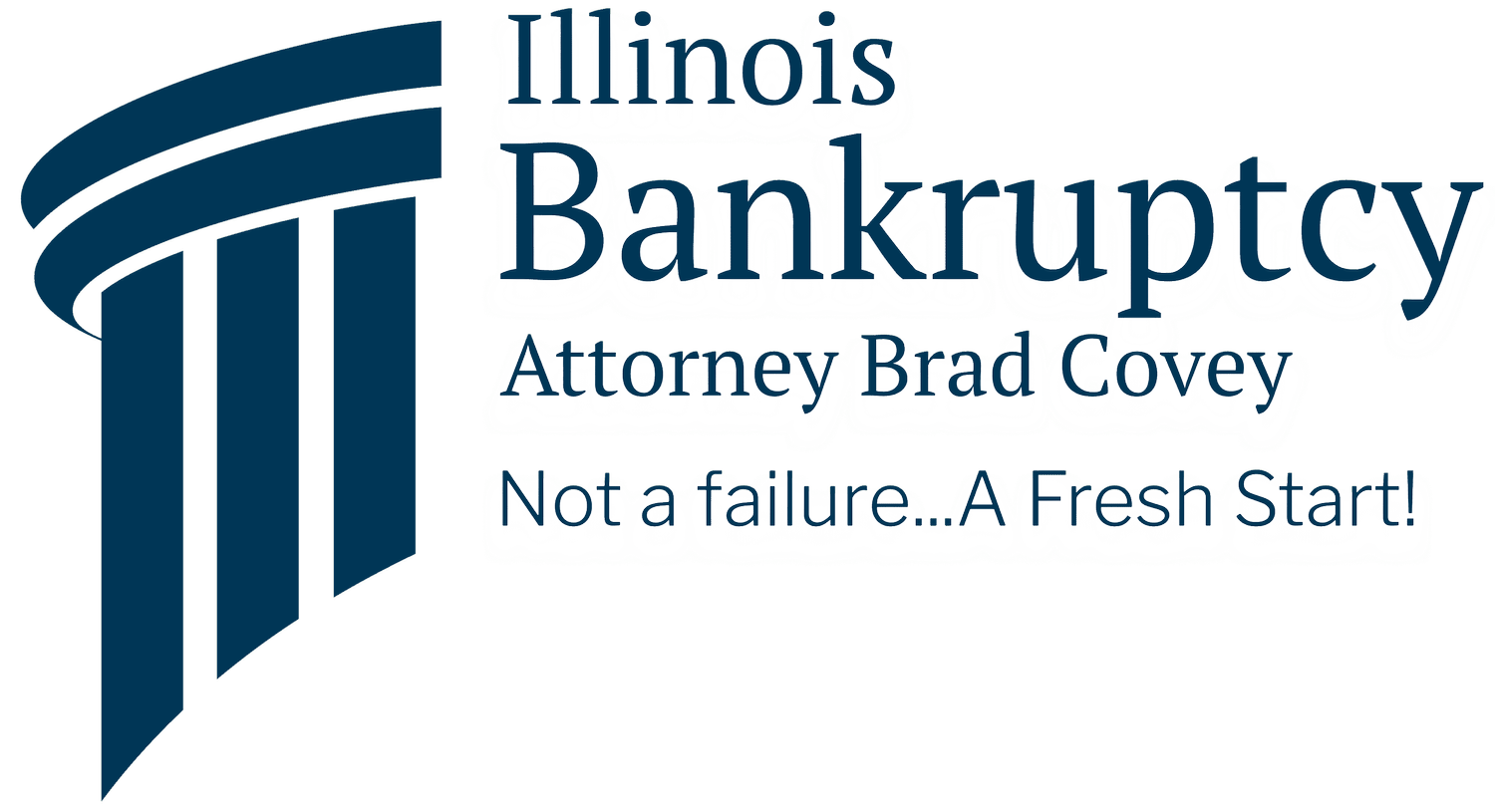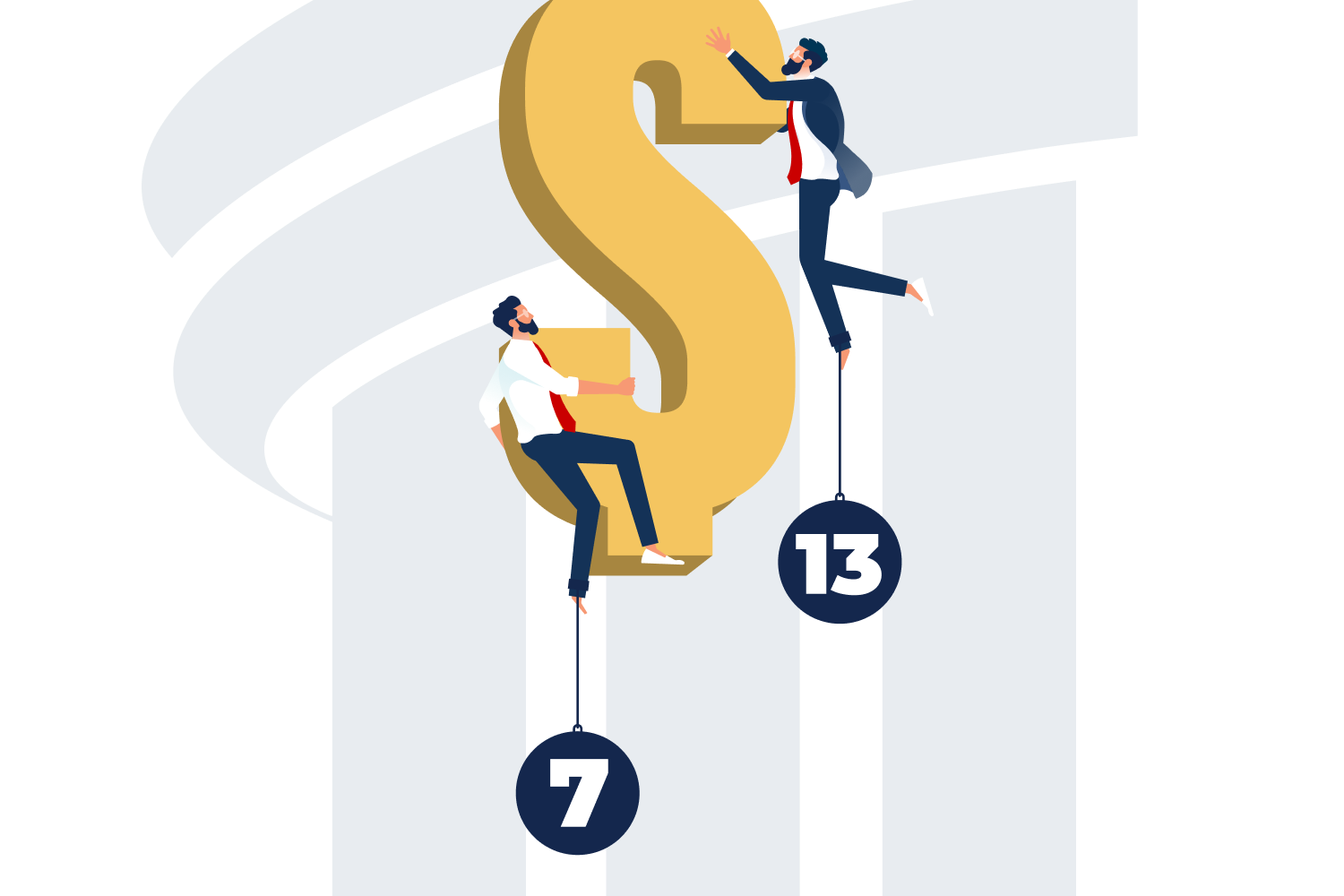Chapter 7 vs Chapter 13
Chapter 7 vs Chapter 13 Bankruptcy
Why File Chapter 7 Bankruptcy in Illinois?
Whether filing Chapter 7 vs Chapter 13 bankruptcy is right for you is something you should discuss with your attorney at your initial consultation. In researching the bankruptcy process you have probably learned that Chapter 7 and Chapter 13 are the two types of personal bankruptcy.
Immediate Protection – Upon filing Chapter 7 bankruptcy the automatic stay stops all creditors from contacting you.
A Fresh Start – With some exceptions, all of your debts are discharged (wiped out) and you get a fresh start.
Completed in a Few Months – You will receive your discharge and be finished within about 3 months of filing.
Lower Cost Than Chapter 13 – Generally, the cost of Chapter 7 is less than that of Chapter 13.
Chapter 7 is the most common type of bankruptcy. About 2/3 of people who file bankruptcy file a Chapter 7. Chapter 7 will wipe out (discharge) most debts and take approximately 3 months from start to finish. Chapter 7 does not wipe out (discharged) certain debts such as child support, most taxes, student loans government fines, and a few others. Some debts must be challenged to not be wiped out (discharged). These debts are typically debts incurred due to fraud and require a separate lawsuit in bankruptcy court called an adversary proceeding.
You will attend one court date called a First Meeting of Creditors or 341 Meeting. At the 341 Meeting we will meet in a conference room with another attorney called a trustee. The trustee will ask you a series of standard questions regarding the accuracy of your bankruptcy papers. The trustee is mostly looking for assets and fraud. Two months after your 341 meeting you will receive your discharge and your case will be closed. Of course there are exceptions to the above such as objections to discharge or cases involving assets, but most cases follow the above pattern.
Why File Chapter 13 Bankruptcy in Illinois?
Stop Foreclosure – Immediately stop foreclosure and catch up on your payments over five years. One reason to file a Chapter 13 instead of Chapter 7 is to catch up on past-due mortgage payments. Chapter 13 allows you to begin making current mortgage payments and catch up on past-due mortgage payments through your Chapter 13 Plan.
Protect Assets – Chapter 13 allows you to keep assets you would otherwise lose in Chapter 7. Yet another reason to file a Chapter 13 is to protect assets. If you have too much equity in an asset and would lose it in Chapter 7, then Chapter 13 can allow you to keep the asset provided you pay back its value over the term of your Chapter 13 Plan.
Modify Repayment Time, Interest, and Amount – You can repay your car over a five-year period, lower the interest rate on your car loan, and sometimes the amount you pay for the car can also be lowered. In certain cases, you can get rid of your second mortgage!
Child Support and Divorce Debts Restructured – You can repay child support over five years as well as pay a percentage on other divorce obligations such as property division and debts you assumed in a divorce.
You don’t qualify for Chapter 7 but still need relief from your creditors. Another reason to file Chapter 13 bankruptcy is that you don’t qualify to file Chapter 7 because you make too much money and don’t pass the means test but still need relief from your creditors. I consider Chapter 13 a “fallback position” to Chapter 7. In other words, if you can’t do a Chapter 7 it is almost always better to do a Chapter 13 bankruptcy than do nothing.
Chapter 13 bankruptcy requires you to pay back some of your debts over a 3 to 5-year period. In a typical Chapter 13 bankruptcy you pay as little as 10% and as much as 100% of your unsecured debts depending on your income, expenses, and assets. When your attorney files your Chapter 13 petition he also files a Chapter 13 Plan. The Chapter 13 Plan outlines who will be paid, when they will be paid, and how much they will be paid. You begin making your Chapter 13 Plan payments 30 days after your case is filed. Your payments are made to a Chapter 13 Trustee who then distributes your payment to your creditors based on several factors (priorities). At the end of your payment term, any unpaid debts are wiped out (discharged).
Your objective should be to get you through the bankruptcy process in the way that best allows you to get a fresh start. For some people, Chapter 7 is the best option and for others, Chapter 13 is the best option, but you can only decide after a thorough review of your specific situation with an experienced bankruptcy attorney.
If you are thinking about filing for bankruptcy in Illinois and have more questions, I encourage you to consider scheduling a consultation with an experienced bankruptcy attorney. During the consultation, you will learn more about the bankruptcy process and whether bankruptcy is your best option.

